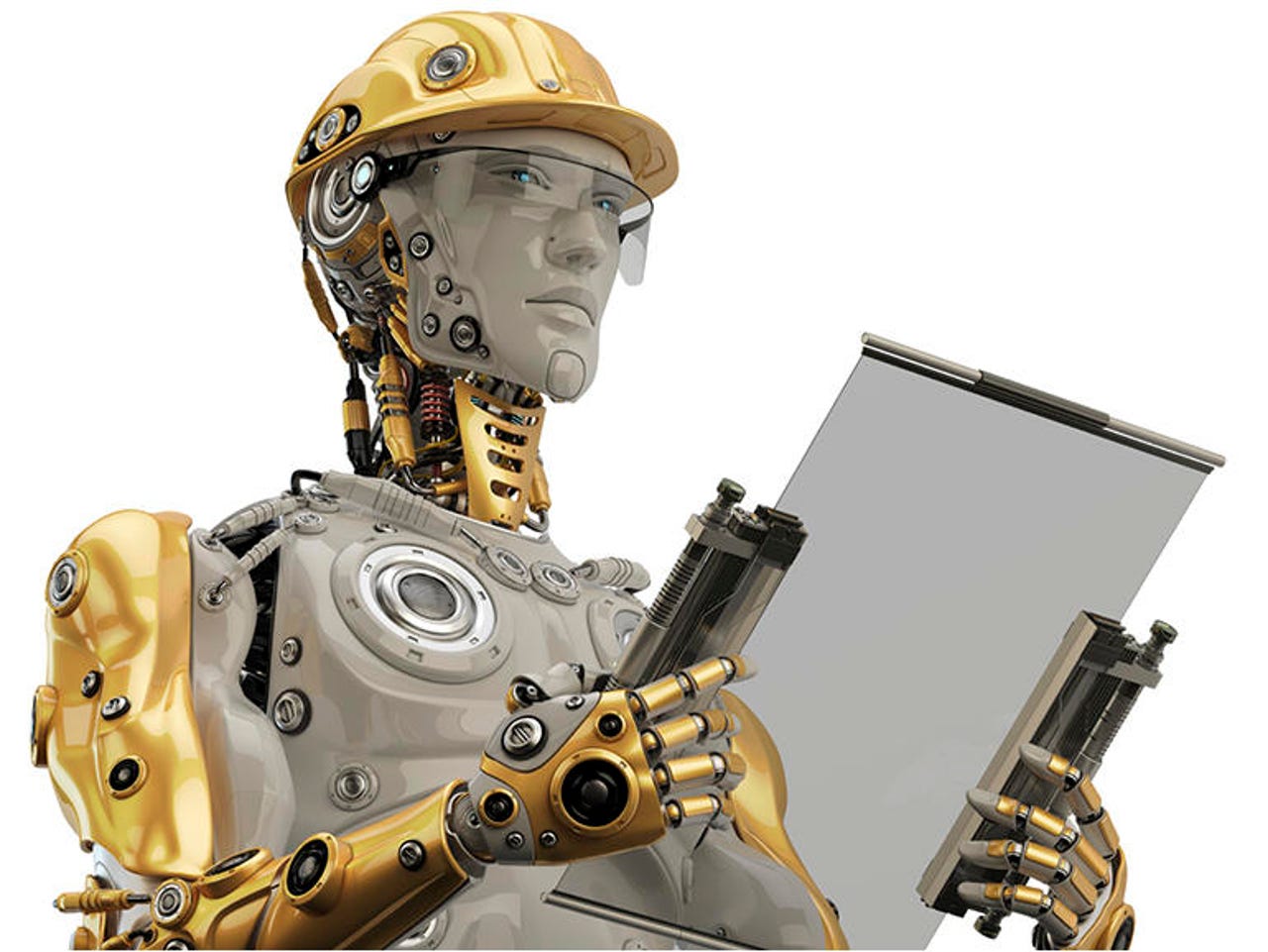No, AI isn't going to steal your job, but it will change it - and here's how


Experts argue that AI and robots won't steal your job -- instead they'll make you better at it by providing assistance.
When it comes to talk of artificial intelligence, it's often doom and gloom. Depending on who you listen to, robots will either take all of our jobs, or AI will become so powerful it will enslave the human race or eliminate us entirely.
Perhaps those scared about the potential of AI don't realise that it already plays an admittedly somewhat basic role in our lives already, with applications ranging from virtual assistants built into smartphones to increasingly sophisticated driverless car technology.
The UK Parliament's Science and Technology Committee set up an investigation into what impact AI could have on jobs and society, and in the first of a series of hearing MPs quizzed experts on a range of issues surrounding AI. But rather than being presented with how AI represents a danger, they were told that it could benefit society by improving how the likes of white-collar workers, scientists, and medical professionals do their jobs -- rather outright stealing them.
"In the service sector, many jobs may well be more readily done using some of these computational techniques," said Professor Philip Nelson, chair of Research Councils UK, who pointed to healthcare and surgical robotics as a particular area where AI could become a "very important technology" for staff.
Professor Nick Jennings, chair in artificial intelligence at Imperial College London's Departments of Computing and in Electrical and Electronic Engineering, and a member of the Royal Society Working Group on Machine Learning, also believes that medicine is an area where AI won't put people out of a job, but rather bring efficiencies and improvements.
"The rate at which medical knowledge is generated is doubling every 18 months to two years, so medical practitioners have little chance to stay on top of that. By the time you've graduated from medical school, the amount of knowledge has doubled and doubled again," he said.
"So what you want to be able to do is to have computers to help you understand that and make decisions -- not to replace humans but to work in partnership, make suggestions. I think that's the key future for AI," Jennings added.
Ultimately, MPs were told, an artificially intelligent machine is capable of performing more calculations than a human ever could, potentially enabling doctors and other scientific professionals to make decisions and discoveries much faster than they can now.
"Machines are able to go through many, many hypothesis -- millions of hypothesis -- and present that back to scientists. That doesn't replace scientists, that amplifies what they can do much in the same way as a telescope amplifies what astronomers can do," said Professor Stephen Muggleton, head of the Computational Bioinformatics Laboratory at Imperial College London, and a member of the Association for the Advancement of Artificial Intelligence.
Nonetheless, MPs on the Science and Technology Committee appeared to remain cautious over what AI could mean for jobs. However, when the internet was a relatively new phenomenon we were told that it could potentially result in mass unemployment -- but that didn't happen. Instead society adapted to the change and the consensus amongst those giving evidence is that would happen again with AI.
"The one fact that we have learned from the internet revolution and the rapid deployment of computers is that worries about large-scale unemployment have largely evaporated because other jobs have been created and that's an important point to make," explained Professor Nelson, who argued that even if some jobs are lost, others will be created in their place.
"Sometimes people worry deeply about the deployment of AI and robotics because of the potential impact on employment. But at the same time it seems to show that you generate other industries and other technologies and you have to up skill the workface to deal with that," he said, adding that he understood concerns.
Ultimately AI could benefit white-collar professionals, rather than costing them a job.
"There are many indicators because the biggest potential [for AI] is as collaborators which provide additional power which can make those people more productive by having a more interactive system which can effectively communicate with them and improve productivity," he said, suggesting that AI won't be smart enough anytime soon to think on the abstract level required for many office roles -- and Professor Jennings agreed.
"I see these technologies as an augmenter of many of the professional white collar activities. I think they would generate new jobs around them," he told MPs. He suggested this could happen in much the same way that data scientist roles have appeared as new job in order to account for the increasing importance of big data and data analysis.
Labour MP Graham Stringer asked the panel if advancement in AI could mean the apocalyptic events of The Terminator could come to pass.
"Do you think there is any danger, even in the middle distance, of AI and robotics getting out of control as they did in that, and if not why not?" he asked.
The AI experts somewhat dismissed the question, with responses ranging from suggesting that thinking about such science-fiction tropes would be "unwise" to reassurances that such an event wouldn't happen -- at least soon anyway.